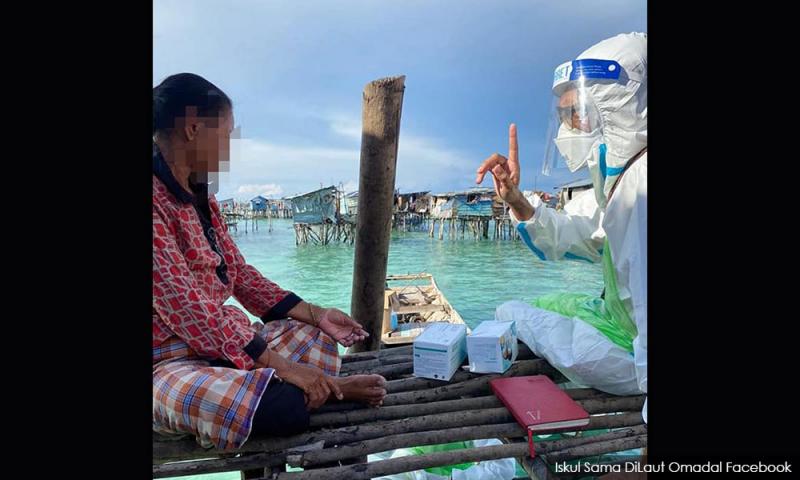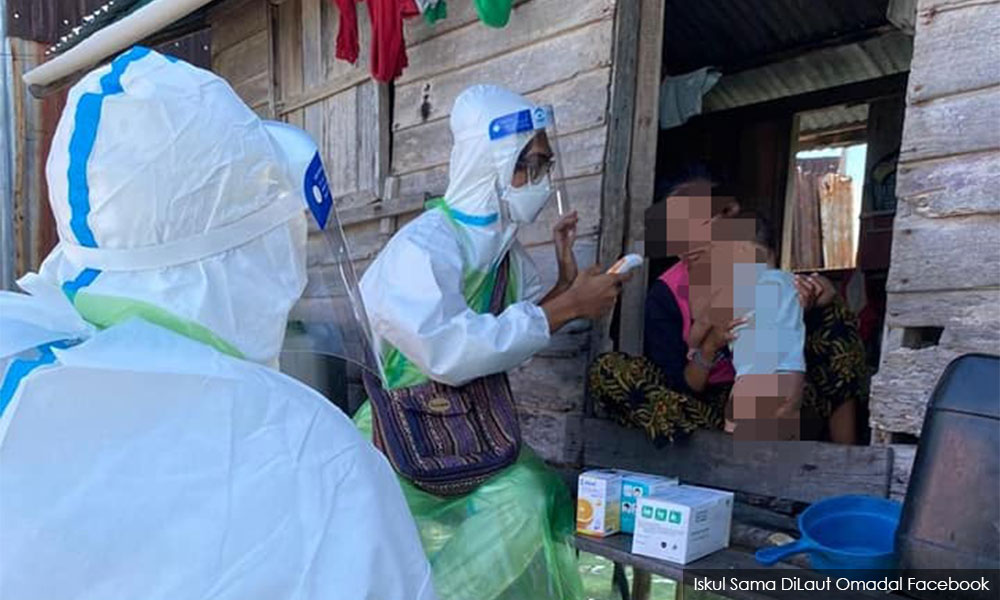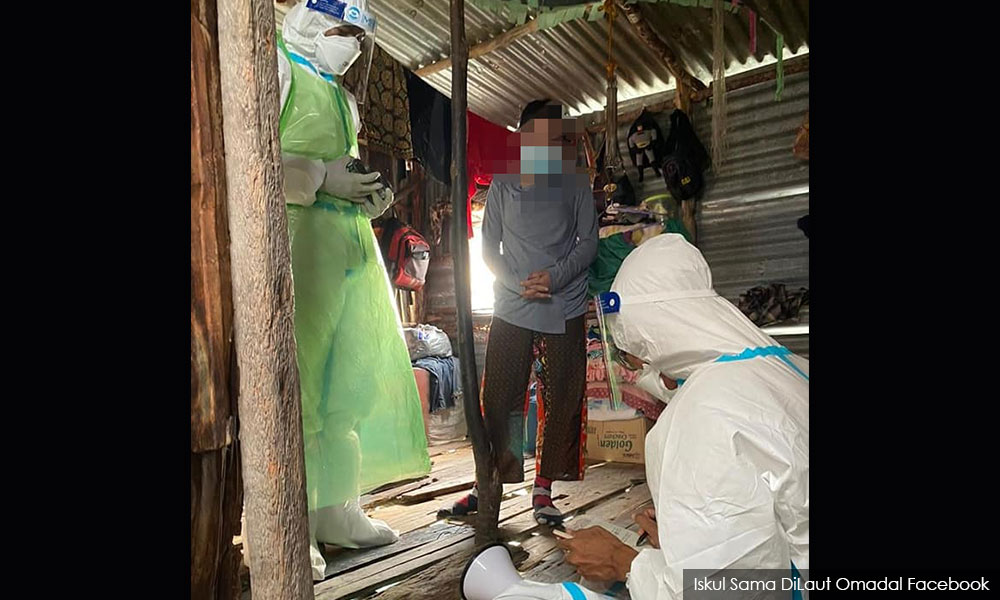Activists with the Iskul Sama DiLaut Omadal (Omadal Bajau Laut School) have found themselves supervising quarantine for at least nine Covid-19 patients in the stateless communities of Pulau Omadal.
Iskul is a community-based school for the stateless children of the Bajau Laut community in Pulau Omadal, Semporna, Sabah. Now that Covid-19 has penetrated the communities where they are active, the school is also doing their bit in the fight against the pandemic.
Iskul co-founder Chuah Ee Chia said that while free Covid-19 screening is offered for both Malaysians and stateless communities in the area, many are scared to go to the hospitals for treatment.
“They are afraid to go to the hospital. The ideal solution would be to set up a quarantine centre in SK Omadal with proper medical volunteers to help monitor their situation,” Chuah told Malaysiakini.
The school has secured funds to provide food, mineral water, and vitamin C supplements for the whole island, an estimated 210 households - both Malaysian and stateless, for two weeks. Additionally, they will provide daily fresh fish to nine quarantined households for two weeks.
Chuah said many non-governmental organisations (NGOs) and non-governmental individuals (NGIs) have stepped in to help Sabahans in need by donating masks and funds.
"We also received transportation help from Semporna Heroes to transport our food and masks. Semporna Heroes is doing amazing work sending food aid to those who are affected in Semporna," she added.
Right now, Sabah is the state hardest hit by Covid-19 with 927 new cases reported yesterday alone, while 105 fatalities have been recorded.
Even getting the community to submit to testing was a challenge and Iskul had to use food baskets prepared for students’ families to entice the stateless population to undergo a first round of Covid-19 swab tests.
The stateless community of approximately 210 households (about 1,000 people) has had two rounds of Covid-19 screenings with 11 out of 53 screened testing positive for Covid-19 the first time, and a further nine out of 136 testing positive the second time.
Of the 11 who tested positive the first time, only one agreed to be taken to Semporna for quarantine, while the other 10 fled and hid within the community. Tracking the patients is difficult as the stateless residents have no fixed domicile and do not go by their official names.
Iskul stated on Sunday that teacher Jefry Musa and Mastal Arikik, as well as teaching assistants Bilkuin and Delah, from the stateless community, paddled by sampan around the settlement to track nine Covid-19 positive patients.
"They wore PPE (personal protective equipment). They brought with them masks, vitamin C, and mineral water. Cikgu Jefry shared with the identified person their Covid-19 result, took their temperature, and showed them how to take vitamin C.
"We advised the patients to stay quarantined together with their family members at home for two weeks," reported the school.
However, quarantining can be very challenging as some of the houses there can be a confined space of as little as 100 sq ft (9.3 sq m).
Jefry shared that while a name list of Covid-19 positive persons was given to them, no further instructions, medical resources, or quarantine bracelets were provided.
“The initial agreement was for Iskul to track the positive patients since some of our team members are from the stateless community. Admittedly, we may have insiders in the community to track them, but we lack medical knowledge and experience to monitor the Covid-19 positive persons.
“We also do not have the authority and manpower to police everyone on the island to stay home should they break the quarantine,” he added.








